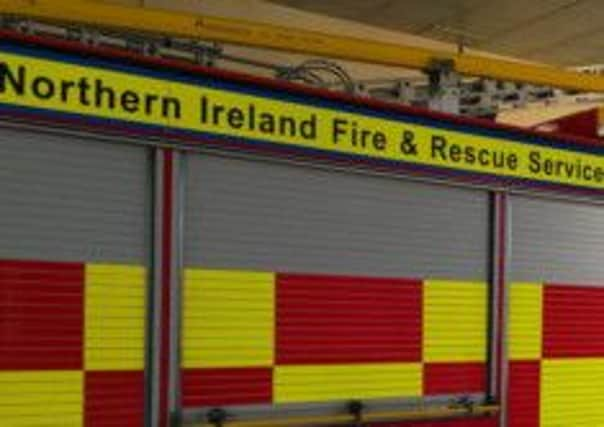Cookstown District’s fire-fighting heroes deployed three times every day


But the number of calls they received, and how many times they responded to those calls, was down one per cent from the previous year.
Whilst the amount of people who tragically died in accidental house fires fell 200 per cent, from two between 2012-13 to none in 2013-14.
Advertisement
Hide AdAdvertisement
Hide AdThe statistics, given to the Mail by NIFRS, cover Cookstown, Dungannon, Magherafelt and smaller towns such as Coagh and Stewartstown - all within the Cookstown District.
They show that in the last year the district’s crews have been called 1,566 times, and mobilised on 1,053 of those calls. In 2012-13 they had 1,591 calls and attended to 1,074.
NIFRS has put out fires, helped on what they term ‘special service calls’ such as road traffic collisions (RTCs), and also help those involved in ‘other’ incidents which can be “quite bizarre and hard to label” said a spokesperson.
“Special service calls would be like specialist rescue incidents,” they said, “things like flooding, people stuck in lifts, people stuck on maybe cliff... large animal rescues.”
Advertisement
Hide AdAdvertisement
Hide AdIn Cookstown District over the last year, NIFRS attended 46 RTCs - exactly the same number as the previous year (2012-13). In dealing with them, crews attended to five deaths in 2013-14, down from six in 2012-13.
The NIFRS figures also detailed 76 RTC casualties helped in 2013-14, and 42 people categorised as ‘rescued’. In 2012-13 87 casualties were aided, and 36 people rescued.
The number of ‘other’ incidents attended by fire crews has increased by almost 50 per cent over the last year. In 2012-13 they helped on 58 ‘special service calls’ but this went up 86 in the last year, and while there were less deaths resulting from these ‘other’ incidents (2), 19 people were categorised as casualties and 15 people were ‘rescued’.
In 2012-13 17 people were rescued, while 23 were defined ‘casualties’.